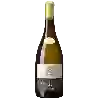
Cave de TainYrisé Rosé
This wine generally goes well with beef, lamb or mature and hard cheese.
Food and wine pairings with Yrisé Rosé
Pairings that work perfectly with Yrisé Rosé
Original food and wine pairings with Yrisé Rosé
The Yrisé Rosé of Cave de Tain matches generally quite well with dishes of beef, lamb or spicy food such as recipes of braciola (southern italy), languedoc-roussillon lamb en papillote and its tajine with... or tunisian tagine.
Details and technical informations about Cave de Tain's Yrisé Rosé.
Discover the grape variety: Maturana blanca
A very old Spanish grape variety, particularly known in the Rioja region. It can be found in Italy, Portugal, Mexico, etc. In France, it is practically unknown. D.N.A. analyses have shown that it is not related to Maturana Tinta de Navarrete.
Informations about the Cave de Tain
The Cave de Tain is one of of the world's great estates. It offers 219 wines for sale in the of Collines Rhodaniennes to come and discover on site or to buy online.
The wine region of Collines Rhodaniennes
The wine region of Collines Rhodaniennes is located in the region of Méditerranée of Vin de Pays of France. Wineries and vineyards like the Domaine Les Vins de Vienne - Cuilleron-Gaillard-Villard or the Domaine Les Vins de Vienne - Cuilleron-Gaillard-Villard produce mainly wines red, white and pink. The most planted grape varieties in the region of Collines Rhodaniennes are Viognier, Marsanne and Roussanne, they are then used in wines in blends or as a single variety. On the nose of Collines Rhodaniennes often reveals types of flavors of red fruit, cassis or black olive and sometimes also flavors of black plum, rhubarb or savory.
The wine region of Méditerranée
Méditérranée is a PGI title that covers wines produced in a large area of the South-eastern coast of France, roughly corresponding to the wine region of Provence but also including Part of the Rhône Valley. The PGI shares its territory with multiple AOC appellations as varied as Châteauneuf-du-Pape, Bandol and Côtes de Provence. The PGI Méditérranée catchment area extends over 10 departments (including the two on the island of Corsica), as well as smaller parts of the Isère, Loire and Rhône departments. Viticulture is essential to the culture and economy of this part of France.
The word of the wine: Muscat blanc à petits grains
A white grape variety cultivated since antiquity on the shores of the Mediterranean, it is considered the noblest of the muscats. It is mainly used to make sweet wines, often from mutage. In France, it is the sole variety used in many natural sweet wines: muscat-de-frontignan, muscat-de-mireval, muscat-de-lunel, muscat-de-saint-jean-de-minervois, muscat-de-beaumes-de-venise, muscat-du-cap-corse. Combined with Muscat d'Alexandrie, it gives Muscat-de-Rivesaltes. It is also used to make sparkling white wines (clairette-de-die; moscato d'asti and asti spumante in Italy) and dry wines (alsace-muscat). Powerfully aromatic and complex, its wines evoke fresh grapes, roses, exotic fruits, citrus fruits and spices.













